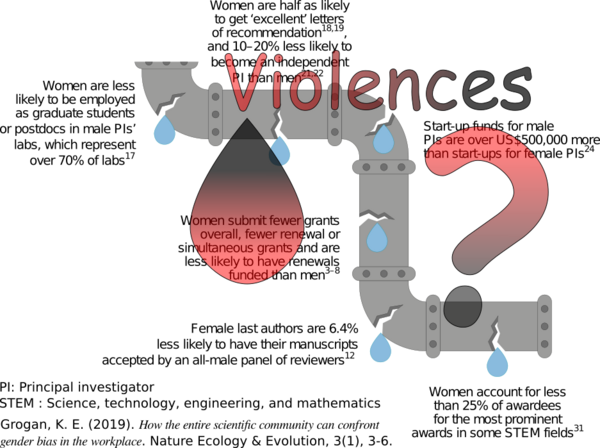Sexist and sexual violences in science, results from an IPSOS survey
In the EOST and the ITES units, women researchers represent a proportion of less than 30% of rank B and less than 20% of rank A scientists. In the recent years, we observe a progression of the recruitment of women in rank A. However, from 2010 to 2023, 3 women and 17 men were recruited in both units as assistant professor or CNRS researcher.
To open a reflexion on those facts, we’ll expose the concept of the leaky pipeline proposed by Grogan (2019). The leaky pipeline shows how stereotypes induce gender biases that hinder women to evolve and fulfil in their scientific career and lead to a decay of the women proportion in scientific laboratories. However, that leaky pipeline misses the impact of sexist and sexual violences at the workplace on the evolution of women’s career.
The recent IPSOS study “Sexist and sexual violences in science” (2023) performed on an international panel estimates that 1 in 2 scientific women are victims of sexual harassment. At the French scale, the Observatoire Étudiant des Violences Sexuelles et Sexistes dans l'Enseignement Supérieur estimated in 2020 that 1 in 10 students suffered from sexual harassment and 1 in 20 students underwent rape in the frame of their studies.
We’ll present in detail the IPSOS study describing the opinion of scientists regarding issues women can face in research, the experiences of sexism and sexual harassment as victim or as witness. Then we’ll show how are perceived the actions and strategies to stop sexist and sexual violences. Finally, we will open the discussion on how at the scale of the unit, the prevalent sexist culture could be overthrown to favour a more inclusive atmosphere that is the basis so women could fulfil serenely in their career.

